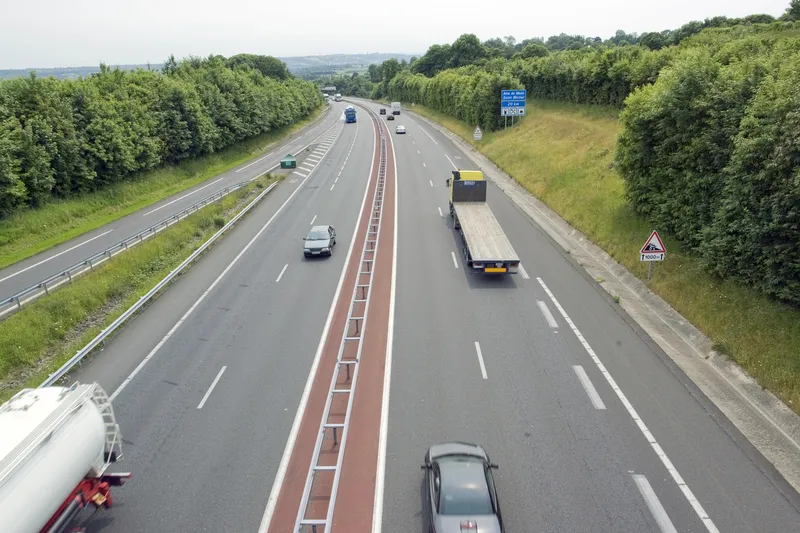
Kapsch TrafficCom has delivered a barrier-free tolling system in France.
Kapsch says drivers no longer have to slow down or stop for tolling on the new A79 motorway in the centre of the country, thanks to the multi-lane free-flow system.
The system is set to process between 10,000 to 15,000 vehicles per day along its 88km stretch.
“The A79 is the first free-flow highway in the country and thus a major step towards multi-lane free-flow implementation and migration on the French highway network,” comments Quentin Houet, area sales manager at Kapsch TrafficCom.
The company says this means not only optimised travel time and less fuel use for motorists but also fewer emissions, as congested traffic is one of the main sources of traffic-related pollution.
In September, Kapsch was awarded another contract for free-flow gantries including hardware supply and related software by French highway concessionaire SAPN.
It will be installed along 250km of the A13 and A14 highways, a heavily-frequented highway route which runs between capital city Paris and the city of Caen in Normandy, and Kapsch says it will save 30,000 tons of CO2 per year.
The gantries are able to detect, identify and classify vehicles and calculate the corresponding toll fee automatically.
“This project is a major stepping stone in the migration from traditional plaza tolling towards free flow systems for a cleaner mobility and a seamless driving experience for the people using the A13 and A14 highways,” says Houet.
The first parts of the new system are expected to become operational in the second half of 2023 to allow a free flow go-live in the course of 2024.









